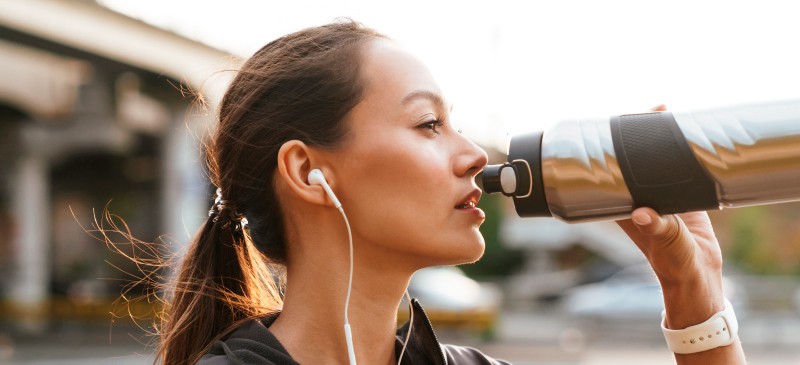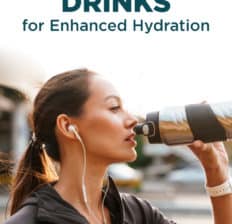This Dr. Axe content is medically reviewed or fact checked to ensure factually accurate information.
With strict editorial sourcing guidelines, we only link to academic research institutions, reputable media sites and, when research is available, medically peer-reviewed studies. Note that the numbers in parentheses (1, 2, etc.) are clickable links to these studies.
The information in our articles is NOT intended to replace a one-on-one relationship with a qualified health care professional and is not intended as medical advice.
This article is based on scientific evidence, written by experts and fact checked by our trained editorial staff. Note that the numbers in parentheses (1, 2, etc.) are clickable links to medically peer-reviewed studies.
Our team includes licensed nutritionists and dietitians, certified health education specialists, as well as certified strength and conditioning specialists, personal trainers and corrective exercise specialists. Our team aims to be not only thorough with its research, but also objective and unbiased.
The information in our articles is NOT intended to replace a one-on-one relationship with a qualified health care professional and is not intended as medical advice.
13 Best Electrolyte Drinks & Their Benefits
May 21, 2024

You lose electrolytes every day when you urinate, sweat, or if you’re sick and experience vomiting or diarrhea. That’s when electrolyte drinks can come in handy. When electrolyte levels dip below normal levels, you can experience symptoms like fatigue, muscle weakness, headaches, nausea, blood pressure changes, cramps and more.
What is the best drink to replace electrolytes? While there are all kinds of bottled electrolytes drinks available in stores, such as Gatorade and other “sports drinks,” not all types are great choices.
Either choosing more natural sources of electrolytes, such as coconut water, or making your own sports drink alternative is a good way to avoid high-calorie, high-sugar sports drinks. Homemade electrolyte water, for example, helps you control the ingredients that you add and can do just as good of a job at preventing dehydration as most commercial drinks.
What Is An Electrolyte Drink?
Electrolytes are a group of essential minerals that we must get regularly from our diets. They got their name because they are basically electrically charged minerals.
This group includes sodium, calcium, magnesium and potassium, which all have critical functions in the body — including aiding in hydration and many muscle, heart and nerve functions. Sodium helps with with water retention and fluid balance; potassium assists with heart function and muscle contractions; magnesium also helps with muscle contractions as well as protein synthesis; and calcium supports healthy blood pressure levels and, again, muscle contractions.
The primary reason that sports drinks were created was to help replace electrolytes that are lost through sweat. The problem with commercial sports drinks, such as Gatorade, Powerade and others, is that they’re often high in both calories and sugar — plus they usually contain artificial sweeteners, flavors, colors and other not-so-great chemicals.
As one dietician explains, “Sugar, salt, and water help your body absorb fluids, but a lot of sports drinks have too much sugar and not enough electrolytes to really help your body replenish the electrolytes it needs.”
Electrolyte water and other similarly healthy drinks are most beneficial for endurance athletes who complete long, high-intensity workouts, as well as people who are sick and losing fluids.
Benefits
When you consume electrolyte drinks, they can offer some of the following benefits:
- Preventing an electrolyte imbalance, in which you’re low in certain minerals, such as potassium or sodium
- Promoting hydration and preventing dehydration
- Reducing muscle spasms and cramps
- Balancing fluids inside your body, which can decrease bloating and swelling
- Managing side effects from vomiting and diarrhea, such as fatigue, lightheadedness, dizziness and nausea
- Decreasing hangover symptoms, such as weakness and fatigue
- Regulating blood pressure levels
- Helping regulate cell and nerve functioning
- Assisting in balancing your pH levels (the measure of acidity and alkalinity)
Best Electrolyte Drinks
It’s most helpful to choose types that provide water, sodium, and some potassium or magnesium. These may be available as tablets, powders or pre-made drinks.
Ideally, choose those that are low in added sugar, made with mostly organic ingredients, and are free of artificial flavors and ingredients, including colors, preservatives and sweeteners.
1. Coconut water with added salt
Coconut water naturally contains minerals, with the primary one being potassium. It contains approximately 600 milligrams (13 percent Daily Value), making it a high electrolyte beverage. Coconut water also contains a small amount of sodium, calcium and magnesium.
To fully hydrate, your body also needs extra sodium. Adding some sea salt to coconut water is an easy way to increase your sodium intake. This combination seems to be just as effective at promoting hydration as some commercial electrolyte drinks, plus it’s naturally low in sugar.
Suggested usage: before, during or after working out.
2. Mineral water
Sparkling mineral water is another natural electrolyte drink that many of us forget about. Depending on the source, the type and amount of minerals can vary but typically include magnesium, calcium and potassium.
With mineral water, the minerals are more easily absorbable because they exist as free ions compared to minerals found in food, which are attached to complex molecules.
Suggested usage: before, during or after working out.
3. Milk
For those who don’t have a dairy allergy or sensitivity, cow’s milk is a worthy electrolyte drink, as it contains natural electrolytes, carbohydrates and protein that make it a quality workout recovery drink.
One cup of milk contains valuable minerals like sodium, calcium, phosphorus, magnesium and potassium. One study even indicated that milk is a superior recovery drink than sports drinks.
Suggested usage: only after working out.
4. Fruit juice, particularly watermelon juice
While fruit juice isn’t generally recommended because of its high sugar content, it does contain multiple electrolytes plus natural sugar to provide energy and hydration. For example, orange juice contains magnesium, calcium, phosphorus and potassium.
This is the case for most fruit juices, though none contain sodium, a critical electrolyte.
Watermelon juice is considered the top fruit juice–based electrolyte drink. Simply juice from raw watermelon, not only does it contain both potassium and magnesium, it offers calcium and phosphorus in lower amounts, too.
Watermelon juice also has a high water content — estimated to be about 91 percent water, which can aid in detoxification. And it contains the valuable amino acid L-citrulline.
Suggested usage: before in small amounts or after working out; never during.
5. Smoothies
While not recommended during a workout, a quality fruit smoothie can be packed with electrolytes to assist in hydration as well as recovery.
Using coconut water, milk or fruit juice as the base, simply add electrolyte foods like bananas, Greek yogurt and peanut butter. (See this list of electrolyte foods.)
Add a protein powder as well to assist with muscle recovery.
Suggested usage: at least an hour before workout out, or afterwards. Never consume while working out.
6. Pickle juice
Does pickle juice contain electrolytes? Yes, as most standard pickles and their juices contain sodium, calcium, potassium and magnesium.
While most experts agree that more research focused on the potential beneficial effects of salty drinks for athletic performance are needed, there are some studies that have shown pickle juice may work just as well as water at reducing legs cramps and exhaustion.
Suggested usage: before, during or after working out as part of a balanced hydration plan. Be aware of its high sodium content.
7. Electrolyte water
Infused with electrolytes, electrolyte is increasingly popular for athletes as well as everyday people looking to hydrate themselves. If can be flavored or sweetened, but often includes less sugar and overall calories compared to sports drinks.
However, you need to be aware that certain marketed brands of electrolyte water don’t contain many more electrolytes than standard tap water, which does typically include up to 3 percent of your electrolyte minerals.
Other brands may contain high levels of electrolytes but also excess sugar, so read the nutrition label carefully. They also can be costly.
Suggested usage: before, during or after working out.
8. Electrolyte tablets
An increasingly common way to get more electrolytes are electrolyte tablets. Simply drop into a bottle of water, ideally cold, and let is dissolve. Perhaps shake as well to make sure it’s fully mixed.
These are designed for athletes to use during or after a workout. They’re convenient and portable, plus relatively inexpensive. Typically high in sodium as well as other minerals that are lost through sweat.
While these tablets are low calories and with not very much sugar, they may include artificial colors and sometimes even caffeine and vitamins. Check the nutrition label carefully.
Suggested usage: during or after working out.
9. Electrolyte powder
Similar to tablets, electrolyte powder is full of electrolytes, designed for athletes and is dissolved in water. Usually available in a tub, you often will use one scoop for every 8 to 12 ounces of water.
Suggested usage: during or after working out.
10. Electrolyte drops
A concentrated electrolyte solution, electrolyte drops are another option for athletes on the go. You can add these drops to water, smoothies or other drinks for a fast electrolyte infusion.
These are typically unflavored and with added sugar.
Suggested usage: during or after working out.
11. Keto electrolyte capsules or powders
Some companies make supplements aimed specifically at keto dieters who are looking for zero-sugar options. If you’re following the keto diet, opt for a mix that’s high in B vitamins, salt, magnesium and potassium.
Suggested usage: during or after working out.
12. Sports drinks
At sports events everywhere, you will likely see big sports drink brands like Gatorade and Powerade. These have been electrolyte mainstays for decades.
The idea behind a sports drink is to supply carbohydrates and electrolytes for energy and electrolyte replacement, but most of these drinks are also high in sugar or artificial sweeteners. One 12 ounce bottle of Gatorade, for example, contains over 20 grams of sugar — this is more than half the daily recommended amount.
Consider making your own with coconut water, some fruit juice, a pinch of sea salt and some cold water. Also try making switchel, a popular DIY sports drink.
Suggested usage: during or after working out.
13. Pedialyte
An over-the-counter electrolyte drink, Pedialyte is marketed for children but adults can also drink for essential electrolytes. With less sugar than sports drinks, Pedialyte can also help rehydrate after losing fluids from diarrhea or vomiting.
Suggested usage: during or after working out. Considering mixing with water as well.
Dosage
Can I drink electrolyte water every day?
You probably don’t need to if you typically only exercise moderately, drink enough water and fluids throughout the day, and eat an otherwise balanced, healthy diet.
However, if you complete long and intense workouts often, this is the perfect time to incorporate electrolyte drinks into your routine — since these types of workouts cause you to lose electrolytes due to excessive sweating.
When should I drink electrolytes?
Basically anytime you’re sweating a lot, losing fluids from being sick or not drinking enough water to stay hydrated is when these drinks are helpful.
Whenever you’re completing a tough workout, such as a marathon or triathlon, it’s a good idea to sip on a drink with electrolytes. Other times in which electrolytes drinks can be helpful include when you’re doing any hour-plus long runs, hikes, bike rides, cycling, heated yoga or HIIT classes.
Additionally, if you’re vomiting or have diarrhea — due to being sick or even hungover — then consider having electrolyte water or another similar drink to stay hydrated. A night of heavy alcohol consumption can lead to fluid loss and dehydration, so consuming drinks with electrolytes after drinking alcohol is a smart idea.
How much electrolytes do we need each day?
This really depends on your body size, gender, where you live and how active you are. Here are general recommendations according to the Dietary Guidelines for Americans:
- Sodium: <2,300 milligrams/day for adults
- Potassium: 3,400 milligrams for men and 2,600 milligrams for women
- Calcium: 1,000 milligrams for men and women
- Chloride: 2.0 grams/day for adults
- Phosphorus: 700 milligrams/day for adults
- Magnesium: Between 310 and 400 milligrams/day for adults
Risks and Side Effects
Can electrolyte drinks be harmful? Overall they are safe to consume if you don’t overdo it and if you avoid consuming commercial types that are full of sugar and other processed ingredients.
If you suspect that you’re experiencing an electrolyte imbalance, look out for symptoms like dizziness, weakness, dry mouth, headache, cramps and fatigue. If adding electrolytes to your diet isn’t helping manage these symptoms after a few hours, then head to your doctor to rule out potential other causes, such as a fever or another illness.
Conclusion
- Electrolytes (including sodium, magnesium, calcium, phosphorus and chloride) are minerals that we must get from our diets regularly since they have many roles. We lose them when we sweat a lot as well as from urinating, vomiting, diarrhea or being hungover.
- Electrolyte drinks help replenish these minerals and prevent side effects liken fatigue, cramps, weakness and headaches. These can come in premixed liquid form, tablet or powder form.
- Coconut water is one of the best and most natural options for maintaining these minerals. It’s even better if mixed with salt for extra sodium.







